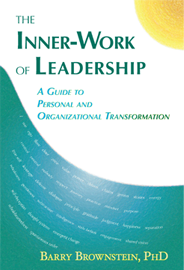Last week an independent medical review panel set up by NASA to review health issues of astronauts found evidence of “heavy use of alcohol” by astronauts before launches on at least two separate occasions. Both flight surgeons and other astronauts warned that the drunken astronauts posed a flight risk. Yet, one flight to the international space station was cleared for launch and another flight was delayed but only for mechanical reasons.
When I first read this report, I had just written about the organizational culture at NASA for a chapter in my book on leadership. This new report echoed another report issued after the 2003 Columbia disaster. In the Columbia disaster NASA’s managers had ignored safety concerns of lower-level employees.
Given what I already knew, the new report was only mildly shocking. NASA’s leadership has a history of poor decision making. Yet one wonders: How can an organizational culture be so dysfunctional that is would allow astronauts to fly drunk?
The ongoing failures of leadership at NASA are due to NASA’s rigid hierarchy where decision makers are able to exert tremendous control without much input from others. Just as under socialistic central planning, or just as in countries run by tyrannical dictators, there is simply no mechanism to recognize and correct errors.
Consider the shuttle disasters, first Challenger in 1986 and then Columbia in 2003. In their book Hard Facts, Jeffrey Pfeffer and Robert Sutton observed that even after the Challenger disaster:
NASA remained a dysfunctional bureaucracy where, rather than deferring to people with the greatest technical expertise, leaders believed that “an allegiance to hierarchy, procedure, and following the chain of command” decrease the odds of failure. People with greater prestige and power routinely ignored and stifled those with more expertise but less power and overturned their recommendations.
In other words, the culture at NASA is a dysfunctional authoritarian culture with leaders who believed that knowledge has a “pedigree.” In such a culture it is very difficult to detect errors. In such cultures arrogant, authoritarian leaders believe their way is the correct way to see things and that others with a different viewpoint are nuisances that get in the way.
During the flight of Columbia, the Mission Management Team had knowledge that a piece of foam had broken off the shuttle’s fuel tank. The Mission Management Team’s leader was briefed by the Debris Assessment Team of the possible damage and what could be done to fix it. The Mission Management Team’s leader disastrously decided that the foam strike was inconsequential.
The Debris Assessment Team engineers, who were seriously concerned about the foam strike, never had a serious hearing. Indeed the Debris Assessment Team was reprimanded for going outside of official channels to seek satellite imagery that they needed. Instead of the foam strike being the focus of attention, a bureaucratic squabble became the focus of attention.
The Columbia Accident Safety Board in its 2003 report wrote that: “In our view, the NASA organizational culture had as much to do with this accident as the foam.” Although NASA claimed it had risk-averse philosophy that sought to avoid errors, the Board wrote sharply: “Unfortunately NASA’s view of its safety culture… did not reflect reality.” NASA’s safety culture was described as “broken.”
Back to the drunken astronauts, apparently rather than deferring to the flight surgeons and postponing the flight, NASA’s leadership ordered the flight to take place as scheduled. Flying shuttle missions with drunken astronauts is very risky behavior—apparently little has changed at NASA.



 Posted by Barry Brownstein
Posted by Barry Brownstein 

